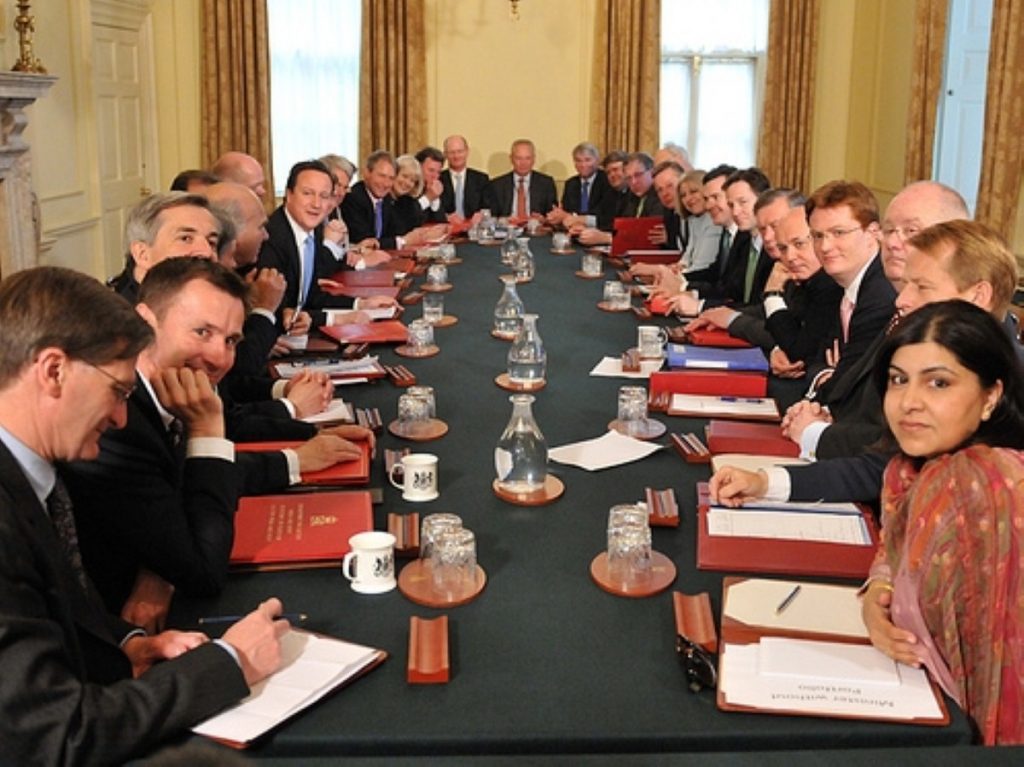Coalition ‘could fall’ over boundary changes vote
By Alex Stevenson Follow @alex__stevenson
The coalition government will face its toughest test over the vote confirming boundary changes, a senior Tory party strategist has admitted.
Sweeping alterations to the electoral map of Britain caused by the coalition's decision to cut the number of MPs from 650 to 600 must be approved by October 2013 at the latest if they are to take effect at the planned 2015 general election.
According to the Tory source, the Commons vote approving the changes is the most likely single moment when the Conservative-Liberal Democrat tie-up could collapse.


Initial predictions about the impact of the boundary changes, which are expected to only leave about 25 seats completely unaffected, suggest the Lib Dems will be hardest hit because of the isolated nature of their constituencies.
The vote will take place towards the end of the parliament and will be the culmination of a lengthy and probably acrimonious process.
Many MPs will find themselves vying to remain in parliament by looking to take seats which their colleagues currently hold.
In the shadow Cabinet, Ed Balls and Hilary Benn are expected to fight for a single seat. In Scotland, former Lib Dem leader Charles Kennedy and chief secretary to the Treasury Danny Alexander's seats are expected to be merged.
Disgruntled Tory and Lib Dem MPs whose seat disappears and who have not had a replacement found for them could decide to save themselves by attempting to vote down the legislation, the source predicted.
Last month Labour activist Lewis Baston produced a nationwide map of the boundary changes for Democratic Audit which suggested the Lib Dems would be the main losers.
His team of researchers at Liverpool University predicted the Lib Dems would lose 14 of their 57 seats, nearly a quarter of the total. Labour would lose 17 and the Tories would lose 16.
Separate analysis which has emerged from the Conservative party today appears to broadly reinforce those figures.
The Tory party analyst said his party would lose 15 MPs, but suggested Labour would lose 25 seats.
The Lib Dems would lose six, the Welsh and Scottish nationalists would each lose one and Northern Ireland parties would lose two MPs.
With the number required for an outright majority falling to 301 in the next parliament, the revised figures based on the 2010 general election result would see the Tories slipping to 291 seats – prompting the need for a second coalition government.












